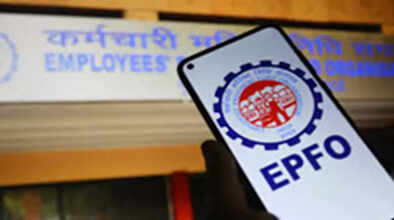EPFO Rule: If PF is deducted from your salary every month, you will get these 7 benefits, most people are not aware of this..

PF benefits: Employees Provident Fund Organization deposits the PF of every employee every month. It is contributed from the salary of the employee.
After this, 7 big benefits are given by EPFO (employees provident fund organization) on this deposited PF amount. Many people are unaware of these benefits. Every employed person should know these benefits (PF Benefits) so that they can also take advantage of these benefits when needed.
1. Pension is given as per rules-
In PF, the employee's money is deducted in the form of Employee Provident Fund (EPF) and Employee Pension Scheme (EPS). PF is 12 percent of the salary which is deducted from the salary of the employee (Employees PF rules), apart from this 12 percent is given by the company.
Pension money (EPFO pension rules) is deducted from the share given by the company. To be eligible for a pension, it is necessary to have a minimum service of 10 years. Pension can be taken after the age of 58 years. Its minimum pension (minimum pension in EPFO) amount is Rs 1,000. Even after leaving the job, this money cannot be withdrawn before the age of 50 years.
2. Nomination facility-
EPFO has now made it mandatory for every employee to choose the nomination of his PF account. Updates are also issued by EPFO (EPFO rules 2025) for choosing the nominee. The employee can choose his family member or anyone else as a nominee (EPFO nominee rules) in his EPF account. After this, after the death of the employee, the nominee gets the PF amount.
3. Investment can be made in VPF-
EPFO has also provided the facility of investing in VPF (Voluntary Provident Fund) to the employees. The employee has the option that if he wants to deposit more amount, he can invest in VPF from his basic salary (VPF rules). Employees get this facility separately from EPF.
4. Facility to withdraw money from PF account -
The employee can also withdraw money from his EPF account (EPF account rules) up to a certain limit if needed, although there are special rules for this (PF withdrawal rules). The employee can withdraw money from his PF (how to withdraw PF) account for the marriage of his siblings or the marriage and education of his children. When this EPF account becomes 7 years old, 50 percent of the money can be withdrawn. Money can also be withdrawn from the PF account for treatment and building a house.
5. Benefit of compound interest -
If an employee has an EPF account, then he also gets compound interest every year on the money deposited in the PF account. It can be generally understood as compound interest. Annual interest is received at the rate of 8.15 percent on the amount deposited in EPF. The amount deposited by the employee in the EPS Corps (Employees pension scheme) is received as much as the fund deposited by the employee.
6. Benefit of life insurance -
EDLI (Employees Deposit Linked Insurance) is a scheme of EPFO that provides financial assistance to the family of an employee in case of his death during work. Under this insurance scheme, the employee's nominee is given a maximum of Rs 7 lakh. No additional contribution is required for this. Because 0.5 percent of the basic salary and dearness allowance is already contributed by the employer.
7. Rules for withdrawing the entire PF amount-
If the employee leaves the job after a few months or a year, he can also withdraw the entire PF amount (PF account new rules). The entire EPF amount can be withdrawn two months after leaving the job. In case of changing the job, the PF money can be transferred to the new PF account after getting a new job (PF transfer rules).
Disclaimer: This content has been sourced and edited from Hr Breaking. While we have made modifications for clarity and presentation, the original content belongs to its respective authors and website. We do not claim ownership of the content.

